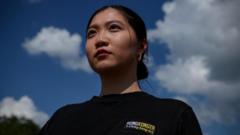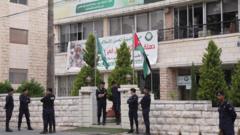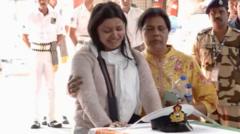The May Day celebrations in Istanbul were met with a major crackdown by authorities, with hundreds arrested and significant restrictions in place, reflecting ongoing tensions in Turkey's political landscape.**
Turkish Authorities Intensify Response to May Day Demonstrations with Mass Arrests**

Turkish Authorities Intensify Response to May Day Demonstrations with Mass Arrests**
Over 382 protesters detained as Istanbul witnesses heavy police presence during International Labour Day.**
In an unprecedented show of force, Turkish authorities have arrested over 382 individuals in Istanbul amidst widespread May Day protests, as the government deployed 50,000 police officers to maintain control. Transport networks were largely shut down to prevent demonstrators from accessing Taksim Square, a historic site for protests that has been under a ban since 2013.
The situation escalated as riot police clashed with protesters, capturing moments of unrest in the heart of Istanbul. Despite the heavy police presence, a few labor unions were allowed to briefly enter Taksim Square with banners and flowers, voicing their grievances in front of the Republic Monument. Nonetheless, the atmosphere in the area was starkly subdued, with shops and restaurants closed for the day.
Witness reports indicated a palpable sense of restriction, with one student expressing frustrations over the police lockdown, likening it to a state of emergency. Just days prior to 1 May, arrests were made of potential protesters, reflecting an intolerant stance against dissent.
Human rights organization Amnesty International has condemned the government's actions, claiming the ban on Taksim protests is unjustified and calling for the respect of the right to peaceful assembly. The crackdown comes in the wake of unrest earlier this year following the arrest of opposition mayor Ekrem Imamoglu, a prominent political figure challenging President Recep Tayyip Erdogan ahead of elections.
Imamoglu, seen as a potential rival to Erdogan, has been accused of corruption, charges he and his supporters claim are politically motivated. The political tension continues to rise in Turkey, as the president's rule now exceeds two decades. He faces limitations on running for re-election after 2028, unless constitutional changes are enacted.

















